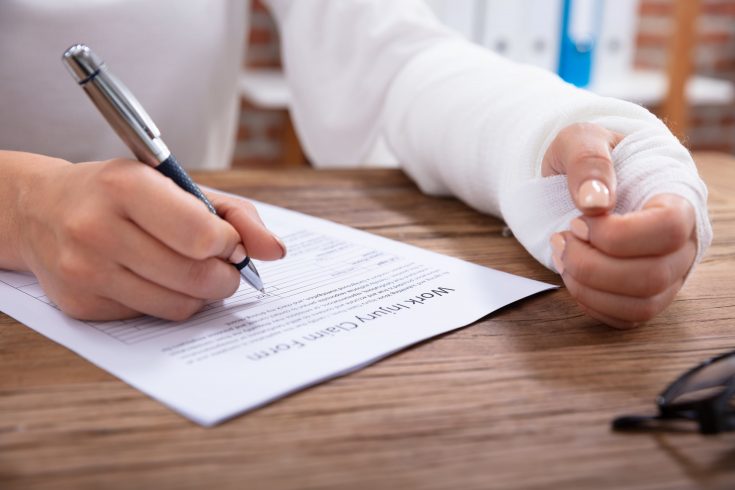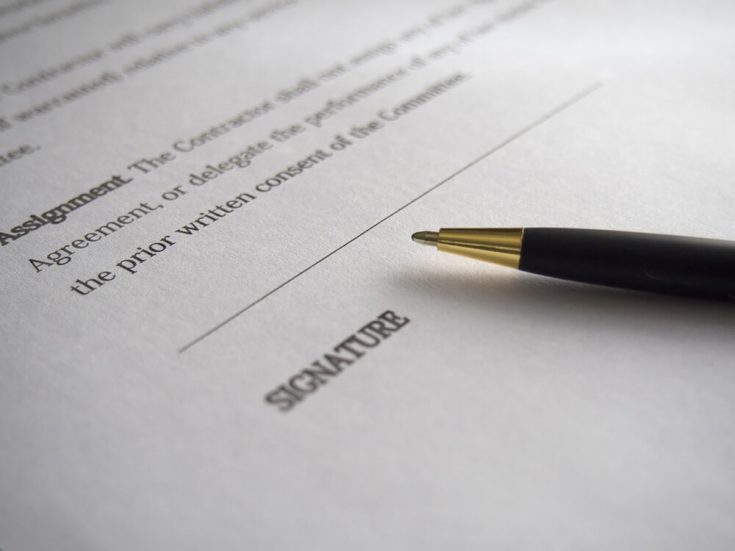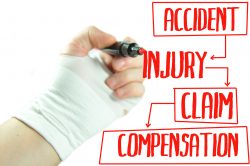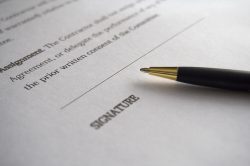Even though almost every person on this planet tries their best to avoid incurring any injuries, their attempts often fail. The most inconvenient injury-causing accidents or incidents are those where the suffering person wasn’t at fault. This puts them in a position to make a claim and receive compensation for the damages.
If you have ever been involved in such a situation, wouldn’t you like to negotiate your compensation amount with the party at-fault, without hiring an attorney whom you would have to pay out of your pocket?
As per TheLawAdvisory, the need for hiring a personal injury lawyer depends on the complexity of your case. Discussed below is a guide that walks you through the ideal circumstances for self-representation and some helpful tips and tricks to negotiate successfully.
1. Gauge the severity of your injuries

Source: fcguerreiro.com
If your injuries are minor and came from, for example, slipping on a wet floor in a store where no such warning signs were placed, the store management might be quick to realize their fault. Thus, it’s highly likely for them to offer you fair compensation to resolve the matter right there and then.
However, if you were the victim of a severe car crash, requiring you to receive ample medical treatment, pay loads of money in car repair, and miss out on work (and consequently, income), the matter might be more complicated than you would want it to be.
In such cases, the defendant’s goal would be to convince you to go with the lowest settlement possible. This is where you should ideally work with an attorney. If you are still confident about pursuing the claim on your own, at least discuss your case with a lawyer.
2. Is the defendant completely at fault?
Going back to the same example that was discussed in the previous section; If you slipped due to the absence of a warning sign, there’s no doubt that the fault was of the store. If you can get a witness or two to testify on your behalf, the store would have no option but to take ownership of the unfortunate incident and reimburse you for the injuries and the inconvenience.
But you might not witness the same level of cooperation once the severity of your injury case goes up. When thousands of dollars are at stake, fully expect the defendant to create fiction in your path to claiming compensation. And if it’s not clear that the defendant was at fault, their case might get stronger.
It’s not rare for the at-fault party to try and shift some, if not all, of the blame onto you, citing how you weren’t attentive or responsible enough to avoid the accident when you could have. If you believe that the defendant has got you in a difficult position, nobody other than an experienced attorney would be able to help you out.
3. Find out your damages

Source: kirkland-mcghee.com
It’s important to note that there are two main types of damages for which you can claim compensation. The first type is referred to as “special damages” and you can easily sum these up. Such damages are calculable and comprise property/vehicle repair costs, lost income, medical expenses, etc.
The second type of damages is more general in nature and might not be capable of being added on paper. These damages include the mental trauma stemming from the accident in addition to the pain and distress.
4. Important things to consider when negotiation a settlement without an attorney
Before making a claim, it’s crucial that you take care of the following things:
- Take photos and videos of the accident site, damaged vehicles (in case of a car crash), and anything that you might consider relevant to your case.
- Receive medical attention immediately and request the doctor to document the extent of your injuries.
- In order to cover the expenses initially, turn to personal injury protection (PIP) insurance. After the initial expenses have been paid, you can rely on your health insurance to cover the rest.
- Make sure to save all the medical bills, transcripts, and other records.
- Make your claim before the expiration of the statute of limitations (depending on the state you live in).
- In case of a car accident, acquire a copy of the police report.
- Do not reveal any details to the at-fault party’s insurance initially, and do not post about your injuries on the internet. You don’t want any sensitive details to fall in the defendant’s lap and be used against you.
5. Prepare a demand letter

Source: prwlaw.com
Once you have gathered all the details that would help you in your claim, it’s time to write a demand letter. In the said letter, put emphasis on the severity of the injuries you have suffered and the damages you have incurred. Convince the reader why the accident was completely the defendant’s fault.
A well-crafted demand letter gets the message across that you are willing to do whatever it takes to claim the settlement amount that is rightfully yours.
Usually, it’s recommended that you write a demand letter once you have recovered to a certain degree. The reason behind this is that once you have started recovering, you will have a better idea about the expenses you need to be compensated for.
6. Negotiating a settlement
Once you send the demand letter, chances are that the defendant might offer you a settlement. They would do this to prevent the case from going to trial. Once you check out the offer, you can determine if it’s good enough or less than what you are actually owed.
At this time, you should proceed with patience. Utilize your negotiation skills to convince the other party to work on their offer. As per The Law Advisory, accepting a lackluster settlement offer in a hurry or under some sort of pressure would discard your right to claim additional compensation; shall any future expenses pop up.
Also, the longer the negotiation process goes, the higher are the chances of the case going to court. And if that happens, not only would you have to pay the court and administrative charges but also the defendant’s attorney fees; shall they end up winning the case.
So, tread carefully when claiming compensation for an accident and try your best to make a settlement agreement out of the court.




